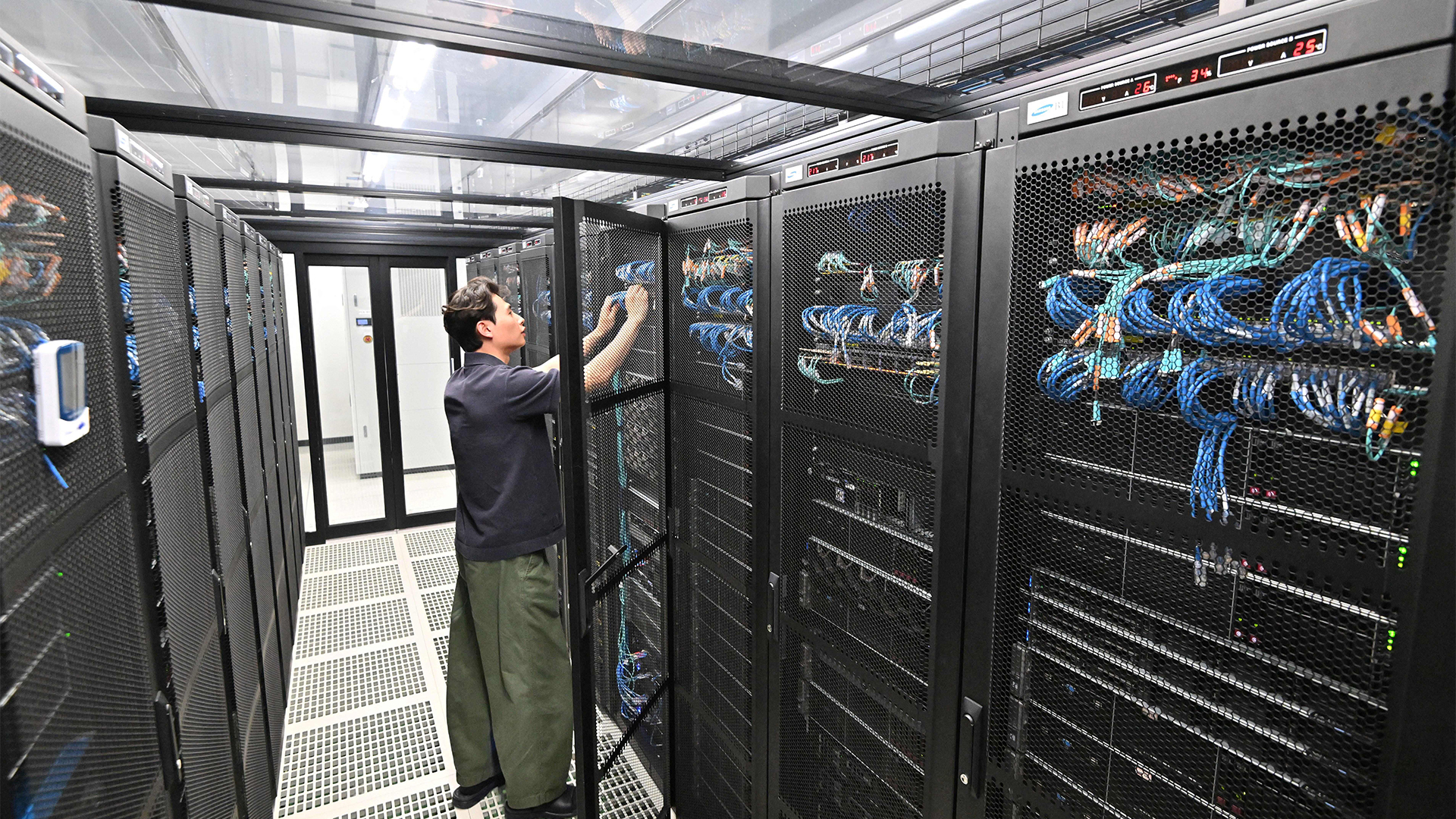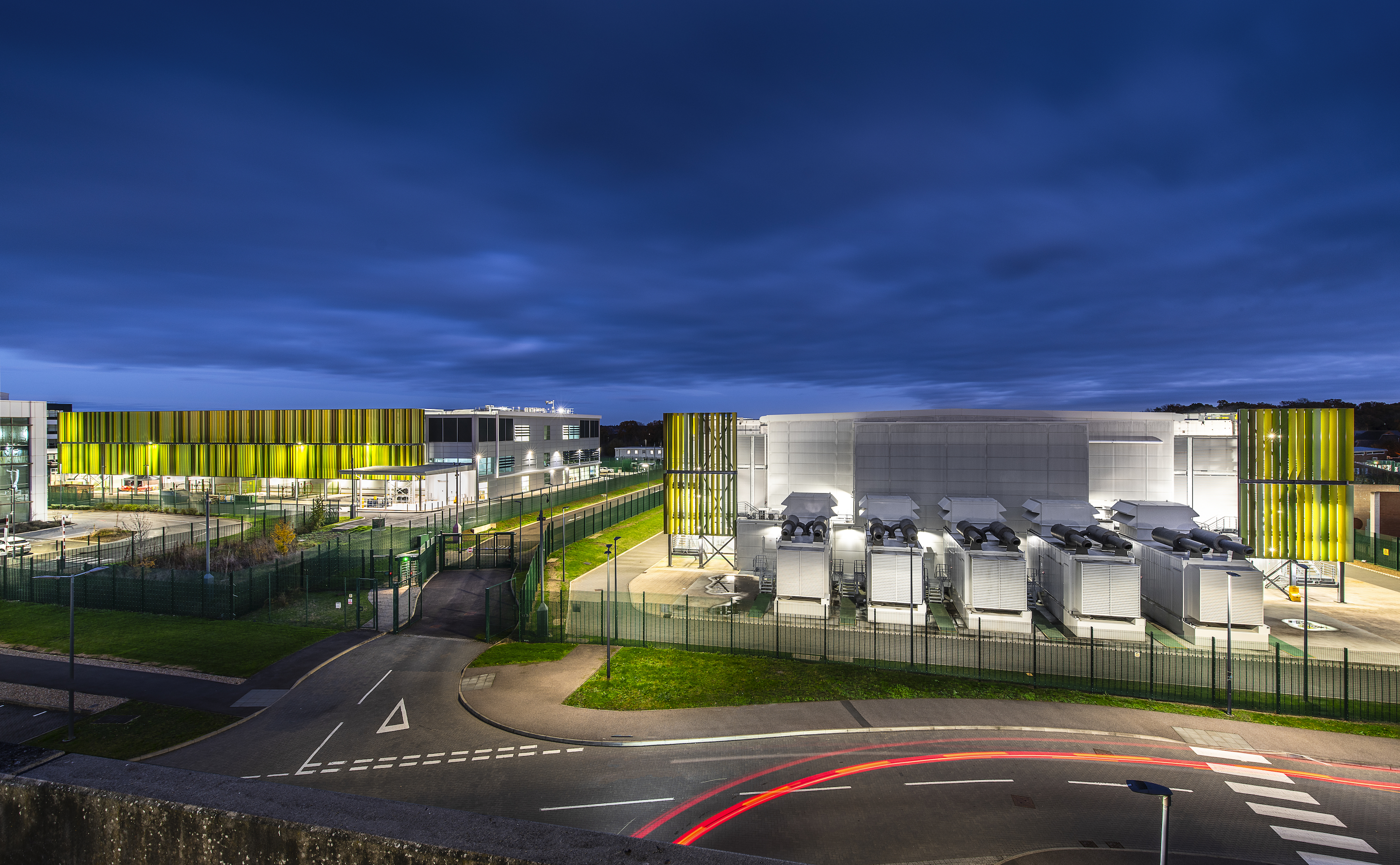What is colocation?
Data centre capacity is exploding with the rise of AI, and that means colocation might be one of the best methodologies for data hosting and processing in the near future


Colocation isn't a new concept, but as we collectively move more workloads to the cloud and cost-saving becomes an even more important driver for doing so, it's never been more popular.
According to Grand View Research, the Data Centre colocation market was worth around US$60bn last year and is set to achieve annual growth of 14.2% between 2023 and 2030. By the end of the decade, the market could be worth over $155.4 billion.
As the name suggests, colocation is where a third party data centre rents or leases space in their facility for servers or networking hardware owned and operated by their customers or users. If you're a user, it means you can outsource your security and reliability, scale relatively painlessly, and take advantage of the latest connectivity and storage technology without the financial risk of ownership. Colocation users enjoy the high uptime offered by dedicated data centre and services are easy to onboard and set up.
By contrast, dedicated server hosting, cloud hosting, or shared hosting is where a data centre owns and manages servers, and as a user you have little input into how servers are configured. Colocation, instead, means you can set equipment up for maximum performance according to your unique applications and data needs – even if it's a choice about the operating systems they run on.
The benefits of colocation

Kao Data is one of a number of data center operators that offers colocation services
Cost
The most obvious benefit is reduced cost. Companies can save up to 30% on operating costs, depending on the implementation and business case. Building a datacentre is a massive capital investment, and having a server in a colocation facility is generally cheaper than hosting it in-house.
Security and business continuity
Sign up today and you will receive a free copy of our Future Focus 2025 report - the leading guidance on AI, cybersecurity and other IT challenges as per 700+ senior executives
Commanding a small slice of a much larger facility lets you enjoy the guaranteed uptime and current-generation security of a major data centre (65% of providers have ISO/IEC 27001 certification, for example), and you can adjust your needs according to what your market or business environment is doing. Most facilities operate with state-of-the-art access control systems, video monitoring, and redundant power systems.
Putting equipment in a facility should mean that an organisation benefits from reliable, uninterrupted service. Colocation offers businesses the chance to deploy servers across multiple sites, diminishing the risk that failure at one site could lead to operations ceasing.
Scalability
Having equipment offsite should give your organisation more bandwidth and power to expand rapidly if needs be. There is always a lot of bandwidth available within such facilities and these are available at a much lower price point than what is normally available to businesses. Also, adding is easy and more cost-effective than trying to expand an in-house datacentre.
Compliance
It is becoming increasing costly to provide compliant in-house datacentres. Using a colocation facility allows organisations to cost effectively maintain compliance with fast changing UK and EU regulations and standards.
The drawbacks of colocation
Emerging technology
There's something of a spectre on the horizon, and like in almost every other field of computing it can be summed up in two letters; AI. This time last year a market research firm predicted that data centre infrastructure demand and operating costs for generative AI development could exceed $76 billion by 2028. That's going to put something of a strain on the infrastructure, and some users have already seen price rises of up to 30%.
Control over assets
Colocation users can't ignore that they have only so much control over their equipment while it's in someone else's facility. If your workloads call for a highly customisable or flexible hardware environment, it might take longer than you'd like to deploy changes – assuming they're possible with your provider at all.
Costs are more complicated and can quickly spiral
Although there are broad cost savings to be made, colocation isn't free. Rather than pay up front for data centre or on-premise systems, you'll pay a set-up fee along with regular installments, and if you opt for pay-as-you-go network or bandwidth charges and traffic or workloads unexpectedly blow out, you might find in-house data management is actually more cost effective. Bandwidth might also be an issue if your application needs low latency, especially if your colocated facility is a long distance away.
Colocation vs Private Cloud
The difference between colocation and a private cloud comes down to how much of your computing you want (or need) to own. Colocation means you rent space for your servers or hardware from a third party. The power, cooling, network connectivity, physical and cyber security, and many other elements are provided for you in your monthly rate, with none of the capital expense of deploying your own.
RELATED WHITEPAPER

It gives you control over your hardware environment, but only to an extent. Scaling is a feature, but you might be limited by the speed and efficiency of the surrounding infrastructure – in both a computer equipment and business sense.
A private cloud means it's your data environment and yours alone. You can tailor it for your processes or applications, there's no security risk from other tenants, and, in terms of scalability, you're only limited by the storage capacity and data processing you have. On the other hand, every aspect of running the environment – from updates to user integration – is going to be your problem to manage (and potential expense).
As with countless other decisions you'll face in application and data management, there's no right or wrong choice. Do your due diligence and the best method will emerge – but don't discount colocation, because it's becoming a more compelling option every year.

Drew Turney is a freelance journalist who has been working in the industry for more than 25 years. He has written on a range of topics including technology, film, science, and publishing.
At ITPro, Drew has written on the topics of smart manufacturing, cyber security certifications, computing degrees, data analytics, and mixed reality technologies.
Since 1995, Drew has written for publications including MacWorld, PCMag, io9, Variety, Empire, GQ, and the Daily Telegraph. In all, he has contributed to more than 150 titles. He is an experienced interviewer, features writer, and media reviewer with a strong background in scientific knowledge.
-
 Jensen Huang says the traditional computing stack will never look the same because of AI
Jensen Huang says the traditional computing stack will never look the same because of AINews The Nvidia chief says new applications will be built “on top of ChatGPT” as the technology redefines software
-
 TP-Link promotes Kieran Vineer to distribution channel director for UK&I
TP-Link promotes Kieran Vineer to distribution channel director for UK&INews The company veteran will now oversee distribution activity for TP-Link’s networking and surveillance channels across the region